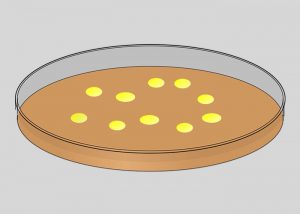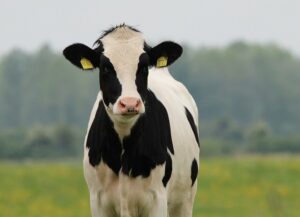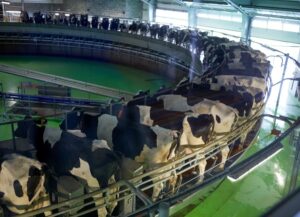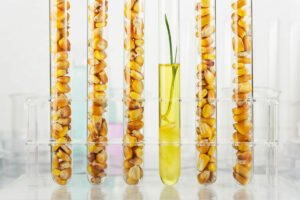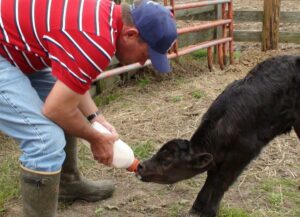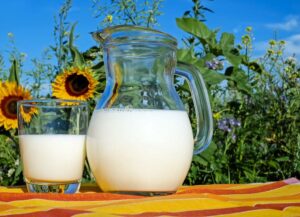Nuria García-Fernández
Salmonella enterica serotype Dublin is an important cause of illness among dairy calves younger than 2 months of age. Infection with S. Dublin can occur when susceptible calves ingest the bacteria in milk or manure from infected animals. In addition to diarrhea, the most common manifestation of S. Dublin in calves is pneumonia.
As a host-adapted strain, infected animals may become lifetime carriers of the infection and shed S. Dublin in feces, milk, and colostrum. It is a difficult infection to treat because this pathogen is frequently antibiotic-resistant. Therefore, stimulating host immunity against S. Dublin through vaccination may be a viable strategy to control this disease.
Researchers from Cornell University evaluated the clinical efficacy of oral and intranasal administration of a commercial modified-live Salmonella Dublin vaccine in Holstein calves from a heifer-raising facility. This vaccine is approved in the United States for subcutaneous administration in calves; however, the clinical effectiveness and serologic implications of other routes of administration (extralabel) are not well understood.
Following an outbreak of S. Dublin, the researchers applied one of these three treatments:
- No vaccination: 132 calves were not administered the modified-live Salmonella Dublin vaccine.
- Oral vaccination: 130 calves were orally administered 4 mL of vaccine mixed with 16 mL of an antacid solution at 4 and 18 days of age. Calves suckled the mixture directly from the syringe or the mixture was administered into the oropharynx.
- Intranasal vaccination: 137 calves were administered 2 mL of the vaccine into one of the nares at 4 and 18 days of age.
Overall, pneumonia was identified in 22.8% calves, and 4.3% calves died. Interestingly, 82% of the death calves suffered pneumonia within the previous two months. Enteritis was not reported during the study. The authors Cummings et at. (2019) reported the following effects of the modified-live Salmonella Dublin vaccine application:
- Administration of vaccine through oral and intranasal routes did not have a significant effect on pneumonia. Over the course of the study, pneumonia incidence risk was 22.0% in the unvaccinated group, 18.5% in the oral-vaccinated group, and 27.7% in the intranasal group.
- However, vaccination reduced calve mortality significantly. Calves vaccinated orally (3.1%) and intranasally (1.5%) had lower mortality risk as compared with control calves (8.3%).
- Serum antibody testing performed using Salmonella Dublin ELISA kit in blood samples collected from calves at 10 weeks and 10 months of age revealed that the administration of the vaccine through oral and intranasal routes did not induce an increase in antibody production. Therefore, vaccine application through these extralabel routes will not impede diagnosis of Salmonella Dublin in ELISA tests. The authors suggested that the reduction in disease severity in vaccinated calves was attributable to an enhanced cell-mediated immune response.
- Prevalence of fecal S. Dublin shedding among clinically ill calves was 6.24%, and this was not affected by vaccination. It has to be mentioned that all S. Dublin isolates were multidrug resistant, showing resistance to amoxicillin/clavulanic acid, ampicillin, cefoxitin, ceftiofur, ceftriaxone, chloramphenicol, streptomycin, sulfisoxazole, and tetracycline.
- Calf average daily gain was similar among treatment groups (0.88 kg).
In conclusion, oral and intranasal administration of a commercial modified-live Salmonella Dublin vaccine may reduce the severity of infection and mortality rate when the farm is affected by a S. Dublin outbreak.
Reference
Kevin J. Cummings, Lorraine D. Rodriguez-Rivera, Michael B. Capel, Shelley C. Rankin, and Daryl V. Nydam. 2019. Short communication: Oral and intranasal administration of a modified-live Salmonella Dublin vaccine in dairy calves: Clinical efficacy and serologic response. J. Dairy Sci. 102:3474–3479.


